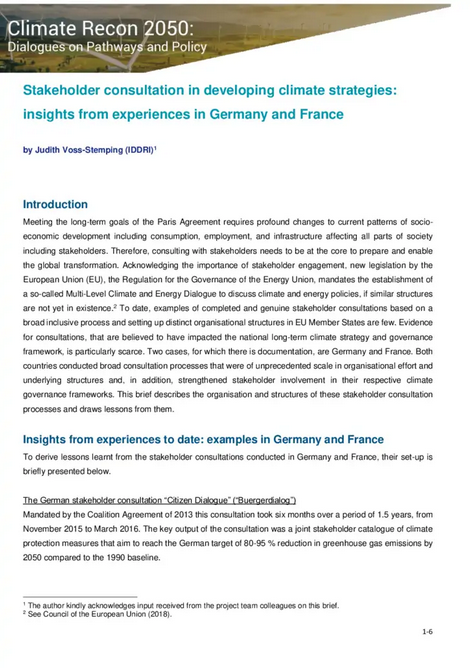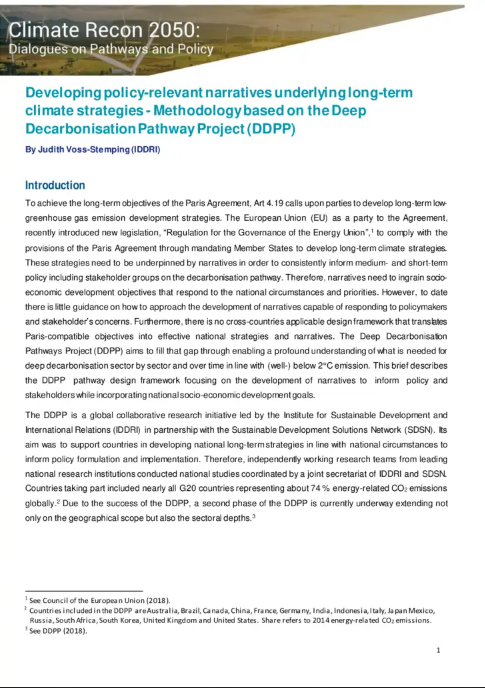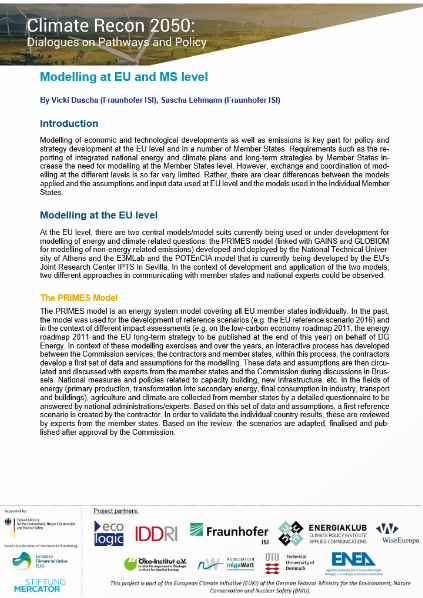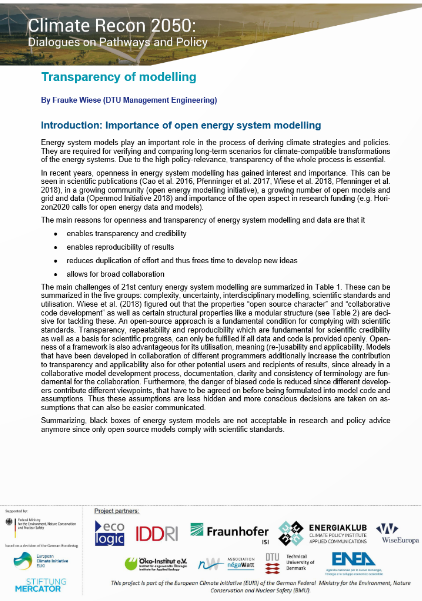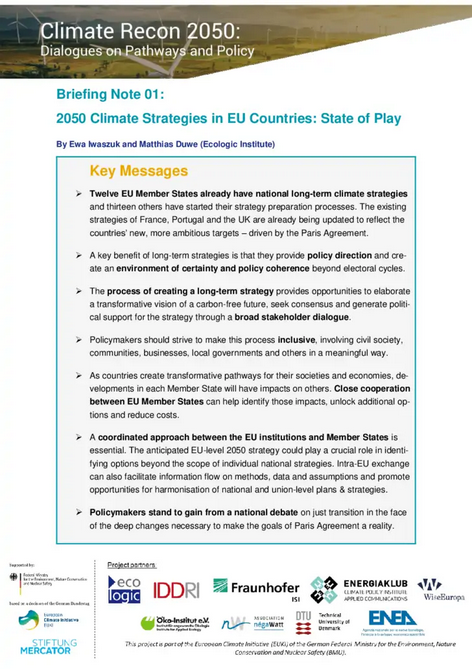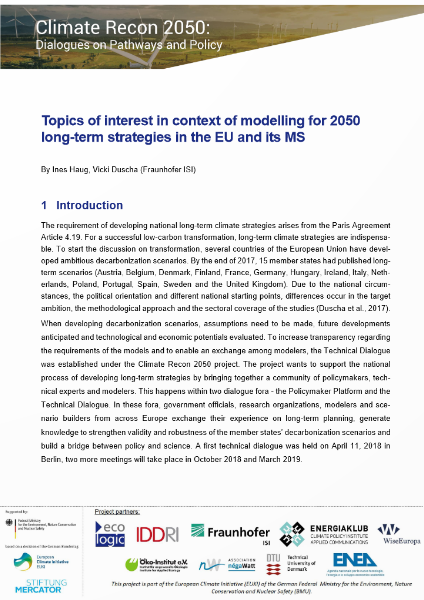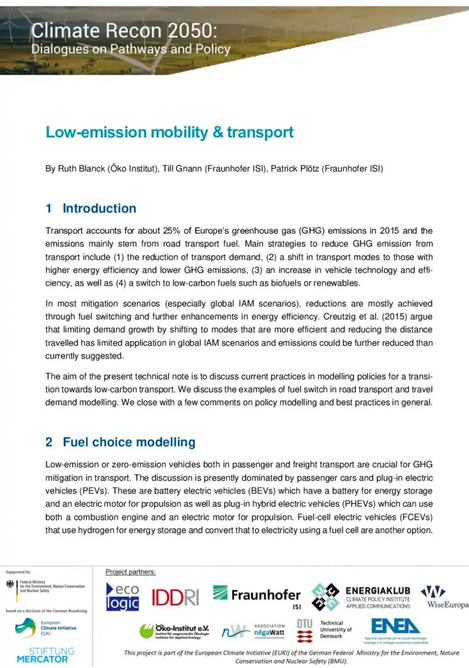CLIMATE RECON 2050 – Intra-EU Exchange to Raise Awareness and Build Capacity on Long-Term Climate Strategies
The project is completed. Climate planning for 2050 has been a core strand of debate in the European Union (EU). Within the framework of the Paris Agreement, all EU Member States had to develop national strategies of their own, albeit with little central guidance and no overarching structure in place for collaboration. To provide support to these national processes, the Climate Recon 2050 project created a platform for dialogue among experts from government and science. The goal of the platform was to identify common challenges and good practices to support effective national 2050 planning through mutual learning
“Climate Recon 2050: Dialogue on Pathways and Policies for a climate-neutral EU” brought together policymakers and technical experts from EU Member States, with one overarching goal: to support national long-term climate-planning frameworks and the implementation of national long-term climate strategies (LTCSs), while contributing to the harmonisation of long-term climate action across the EU.
The objective of the project was to organize dialogue workshops for government experts, to undertake targeted comparative analysis of selected national LTCSs in the project’s target regions, to create opportunities for cooperation between relevant stakeholders by organizing regional seminars in the target regions and to conduct outreach activities.
The project was led by the Ecologic Institute in cooperation with eight partners representing research organisations, climate governance experts, modellers and scenario builders from across Europe (Poland, France, Italy, Denmark, Hungary).
Climate Policy Climate Strategies and Plans
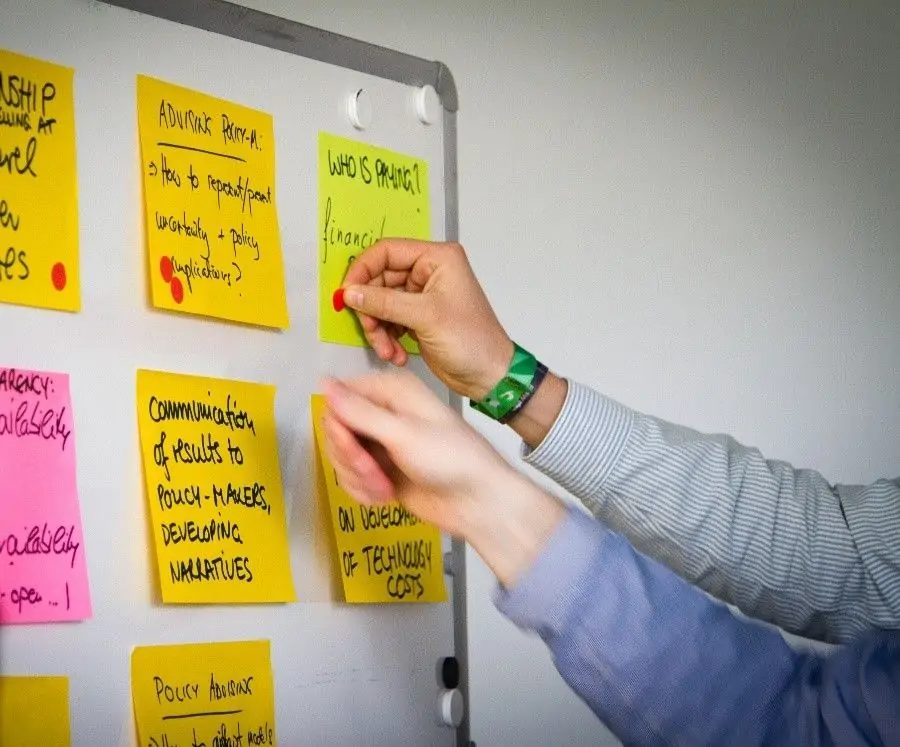
Project info
Czech Republic, Estonia, France, Germany, Italy, Poland
11/17 - 10/19
-
377,901.00 €
Contact info
Matthias Duwe
- DTU Management Engineering, Technical University of Denmark
- ENEA (Agenzia Nazionale per le Nuove Tecnologie, l'Energia e lo Sviluppo Economico Sostenibile)
- Energiaklub Climate Policy Institute and Applied Communications Association (Energiaklub)
- Fraunhofer Institute for Systems and Innovation Research ISI
- Iddri (Institut du développement durable et des relations internationales)
- Institute for Applied Ecology
- négaWatt
- WiseEuropa - Foundation Warsaw Institute for Economic and European Studies
Background
Despite existing and foreseen political commitments (e.g. Paris Agreement, Governance of the Energy Union), by 2017, only a minority of EU Member States had formulated a robust long-term climate strategy – and the existing ones differed in scope and level of detail. The project aimed to fill a gap in the landscape of existing politico-technical processes and seeked to support national planning processes by fostering a community of experts and policy-makers for the promotion of long-term climate strategies as a tool to guide the low-carbon transformation in Europe – and add relevant knowledge.

Project
The project consisted of a number of parallel workshops which brought together policymakers and modelling experts from across Europe, allowing the two groups to exchange experiences and best practices within and between the groups at workshops in Berlin, Warsaw, Copenhagen. Rome, Paris and Brussels.
As a core group of Member States, the project received support from the Czech Republic, Estonia, France, Italy, Poland and Germany. Additionally, the project organised a number of dissemination events, web seminars and publications that aimed to present insights from the two to a broader audience, but also allowed interested stakeholders, beyond the ones directly participating in the project, to feed inputs into the ongoing discussions.
Climate Recon 2050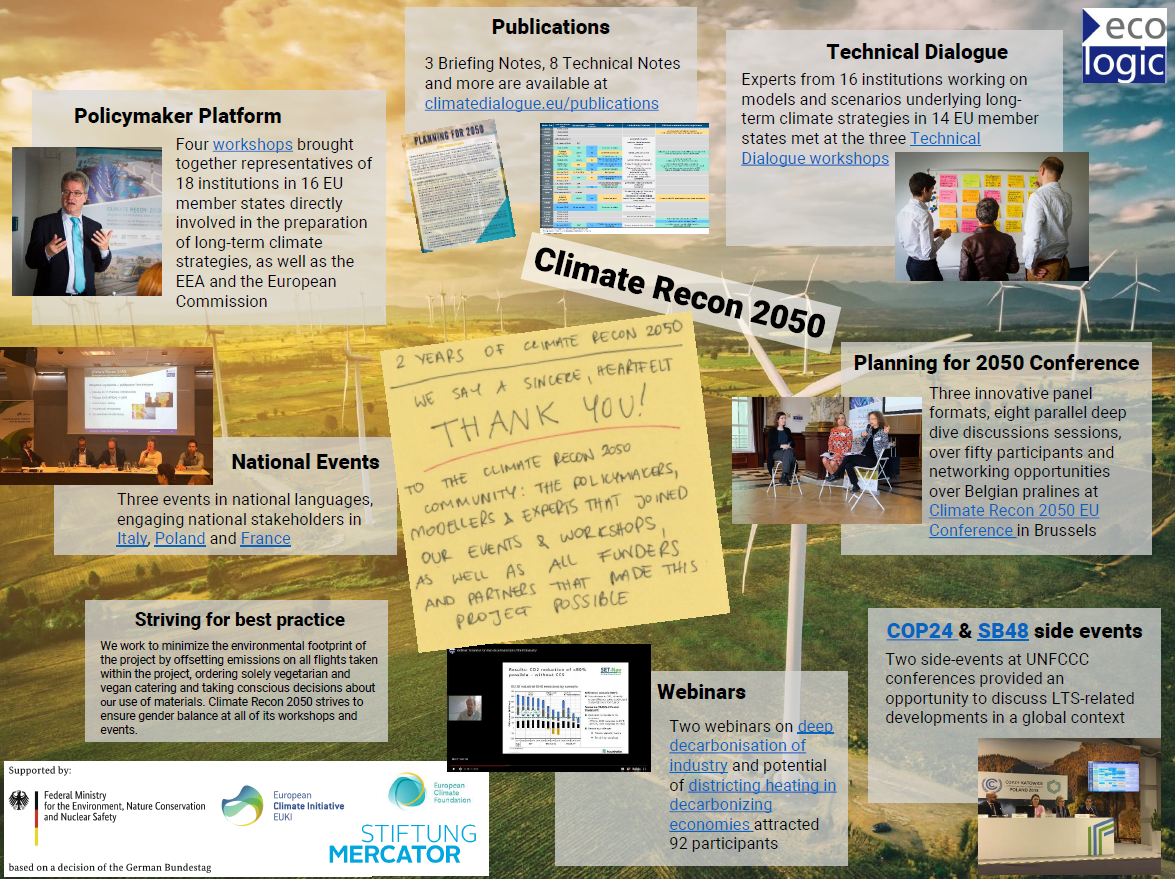
As a core group of Member States, the project has received support from the Czech Republic, Estonia, France, Italy, Poland and Germany. The project will additionally result in a number of dissemination events, webseminars and publications that aim to present insights from the two fora to a broader audience, but also allow interested stakeholders, beyond the ones directly participating in the project, to feed inputs into the ongoing discussions. The project is led by the Ecologic Institute in cooperation with eight partners representing research organisations, climate governance experts, modellers and scenario builders from across Europe (Poland, France, Italy, Denmark, Hungary).
Results
- A wealth of experience: Nearly half of the EU Member States had already developed national long-term climate strategies (LTCS) within the past decade. With the Paris Agreement and its objectives serving as an impulse, some countries began to review existing strategies for an update in 2020 and started to plan towards net zero greenhouse gas (GHG) emissions by 2050 or earlier. Good practices existed for many procedural elements, including governance frameworks and stakeholder involvement.
- Great diversity: The existing strategies differed in many respects, including content, degree of detail on specific measures, political ownership and legal form. This diversity reduced comparability. Moreover, some strategies did not deliver on the essential elements needed to manage the net-zero transformation. Accordingly, they could not provide a clear direction for near-term policies. The lack of a common guidance framework and low comparability posed obstacles to effective strategy development. Without losing sight of country-specific circumstances, a higher level of strategic alignment was needed and could take the form of a common fact base, regarding inter alia technological assumptions and options.
- Common challenges: Similar issues arose across the EU both in policy-making and on a technical level. These included connections between the EU and national levels as well as coherence between near- and long-term policy-making—i.e., between the 2030 National Energy and Climate Plans (NECP) and 2050 LTCSs—to avoid carbon-intensive lock-ins and economic and social disruption.
More about this project:
Find a brief document elaborating on the key findings here.
A Resource Library with project outputs can be found here.
Last update: July 2024

